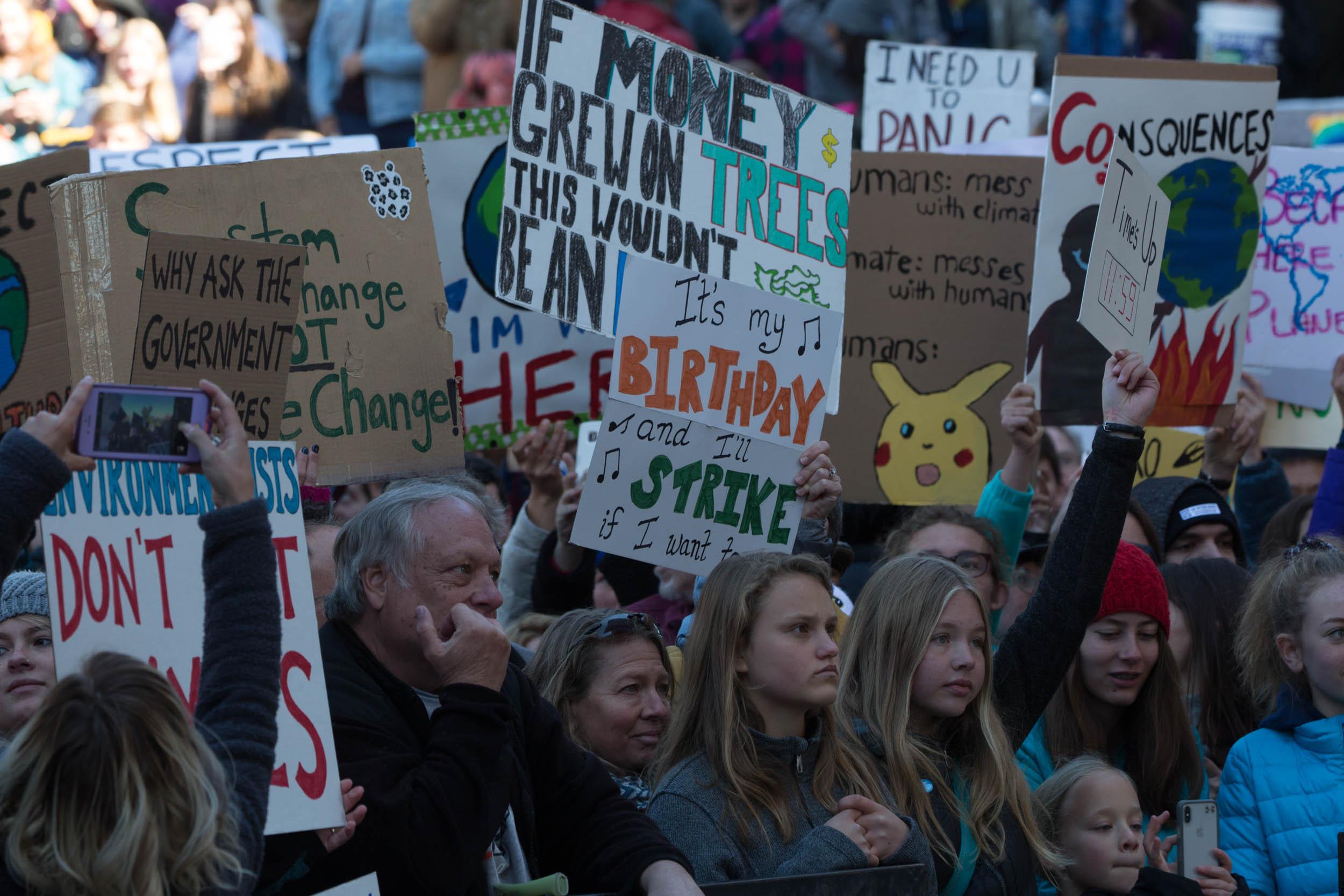A year after Denver voters approved a sales tax to raise around $40 million a year for projects to soften the effects of climate change, the city has released a five-year framework for how it will spend that money.
The first big round of projects the climate office will propose to build with the fund includes $26 million to build and operate community solar projects across the city. That includes solar-powered public carports and EV charging stations at parks and recreation centers like the Lowry Tennis Courts and the Montbello Recreation Center.
One of the solar carports is planned for Northeast Early College in Montbello, which has partnered with the climate office on a job-training program that teaches students skills in installing renewable energy infrastructure.
"It continues to strengthen the ties that school and community will have with clean energy, and hopefully inspires students to go off and pursue careers in this space," said Jonathan Rogers, with Denver's Office of Climate Action, Sustainability and Resiliency.
Rogers expects the money spent on the project will be earned back through energy savings and solar incentive payments from Xcel Energy. Money earned by the solar project will be spent on other solar programs that support low-income residents.
If the project gets approval from Denver City Council, the first phase is expected to break ground early next year.
Denver climate officials said that roughly one-third of the energy generated by the city-owned solar projects would be used to reduce electricity bills for public school families and people in public housing.
"I think creating community benefits and equity is really central to everything that we're trying to do," Rogers said.
Denver is one of only two cities in the United States with a voter-approved climate fund, said Grace Rink, Denver's chief climate officer.
"It's an absolute game-changer for Denver, it truly is," Rink said. Before this, she said the total funding from the city's general fund for the Denver Office of Climate Action was a little under $4 million.
The plan formally establishes Denver's goal to eliminate 100 percent of greenhouse gas emissions by 2040 and sets a "science-based target" of a 65 percent reduction in emissions by 2030. The report states that this new target represents Denver's "fair share of carbon reductions" needed to meet the Paris Agreement's more aggressive goal of keeping warming below 1.5 degrees Celsius.
The plan has identified locations in neighborhoods considered especially vulnerable on the city's climate equity data map to prioritize projects that reduce the effects of climate change, including heat islands and pollution, Rogers said.
He said the goal is to figure out how to solve the immediate issues in community members' lives, like how to commute safely and pay a utility bill and do it in a way that reduces the city's carbon footprint.
"[That] enables us to transition to a sustainable society, and not just environmentally sustainable, but also economically and socially sustainable as well," Rogers said.
The climate fund is intended to pay for programs that eliminate greenhouse gas emissions and air pollution and adapt to climate change, emphasizing investing in communities of color, under-resourced communities and communities most vulnerable to climate change.
The plan outlines six categories of possible uses for the climate fund: job creation through local workforce training, investments in renewable energy technology and programs for climate justice, climate adaptation, transportation and building efficiency.
The office plans to spend the largest chunks of the climate fund on upgrading buildings and renewable energy projects and workforce training, which will likely get 25 percent and 20 percent of the budget, respectively.
A report will be released each year that details how the money was spent on what projects and will include metrics on how those projects are performing.












